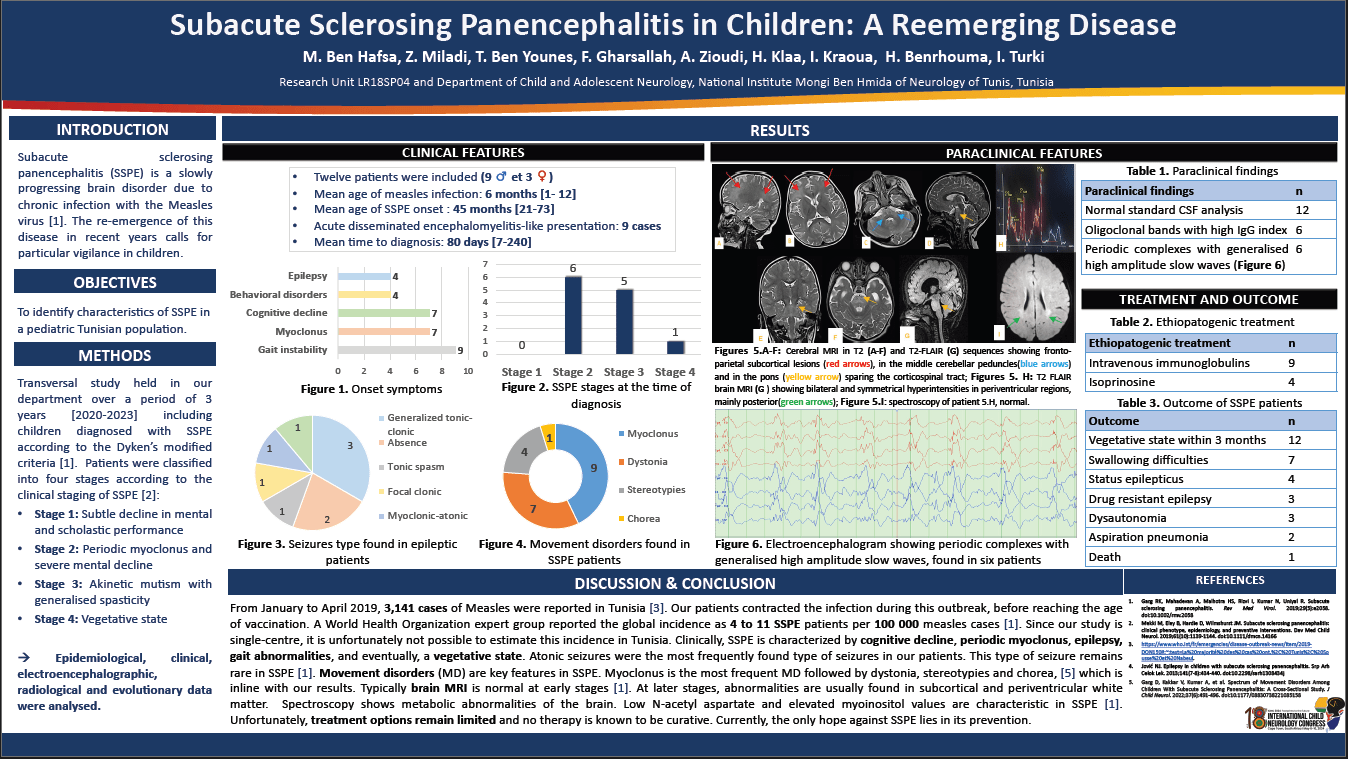Subacute Sclerosing Panencephalitis In Children: A Reemerging Disease
Introduction: Subacute sclerosing panencephalitis (SSPE) is a slowly progressing brain disorder due to chronic infection with the Measles virus. The re-emergence of this disease in recent years calls for particular vigilance in children Objectives: Identify characteristics of SSPE in a pediatric Tunisian population Methods: A transversal monocentric study over a period of 3 years [2020-2023]. All children diagnosed with SSPE according to the Dyken’s modified criteria were included Results: Twelve patients were included. Measles infection was contracted at a mean age of 6 months. The mean age of onset was 45 months. Onset symptoms were: gait instability (n=9), myoclonus (n=7), cognitive decline (n=7), irritability (n=4) and epilepsy (n=4). Brain imaging showed deep white matter lesions (n=5), lesions of the cerebellum pedunculi and the pons sparing the corticospinal tract with “mustache-like sign” (n=3) and brain atrophy (n=2). Electroencephalogram showed periodic activity in 6 cases. Cerebrospinal fluid analysis revealed the presence of oligoclonal bands with high IgG index and a positive IgG serology for measles in all cases. Nine patients received intravenous immunoglobulins and four were treated with Isoprinosine. Epilepsy was drug-resistant in 3 cases. All patients were bedridden after 3 months of disease onset Conclusions: All our patients contracted measles during the outbreak in 2019 before reaching the age of vaccination. Despite effective coverage of measles immunization in our country, a fatal disease like SSPE continues to haunt children. Main clinical features are psychomotor regression and myoclonus. Unfortunately, treatment options remain limited and no therapy is known to be curative
Meriem Ben Hafsa
Tunisia
Zouhour Miladi
Tunisia
Thouraya Ben Younes
Tunisia
Farah Gharsallah
Tunisia
Abir Zioudi
Tunisia
Hedia Klaa
Tunisia
Ichraf Kraoua
Tunisia
Hanene Benrhouma
Tunisia
Ilhem Ben Youssef Turki
Tunisia

Meriem Ben Hafsa
Tunisia